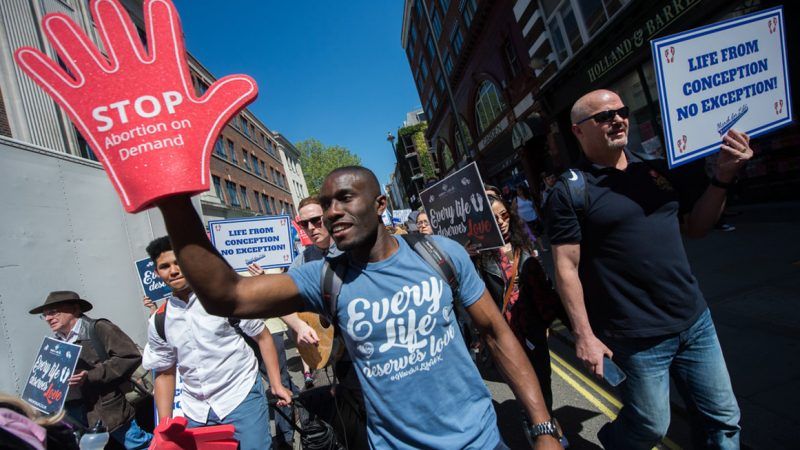U.K. Appeals Court Overturns Ruling That Would Have Forced Mentally Disabled Woman To Get Abortion Against Her Will
Justice Natalie Lieven ruled it was in the woman's "best interests" because she has learning disabilities.

An appeals court in the United Kingdom has overturned a lower court ruling that would have forced a woman who is 22 weeks pregnant to have an abortion because she has learning disabilities.
The unidentified woman, who is in her twenties, did not want to terminate her pregnancy. But because she reportedly has the mental capacity of a 6-to-9-year-old child, Justice Nathalie Lieven of the Court of Protection argued it was for her own good. "I am acutely conscious of the fact that for the state to order a woman to have a termination where it appears that she doesn't want it is an immense intrusion," Lieven wrote. "I have to operate in [her] best interests, not on society's views of termination."
A National Health Service (NHS) trust that oversees the care of the mentally disabled woman asked the court to force the abortion because it feared that bringing the pregnancy to term would be harmful to her mental health. Lieven agreed. "I think she would like to have a baby in the same way she would like to have a nice doll," the justice said.
The woman's mother, who is a former midwife, filed an appeal on Friday and said she was willing to care for the child. Lord Justice McCombe, Lady Justice King, and Lord Justice Jackson of the Court of Appeal ruled in her favor, and said they will release the grounds for their decision in the future.
Lieven is reportedly an ardent supporter of abortion rights, which she has made clear in public statements and in prior cases.
The pregnant woman is a Catholic, and church leaders were quick to come to her defense. "Forcing a woman to have an abortion against her will, and that of her close family, infringes upon her human rights, not to mention the right of her unborn child to life in a family that has committed to caring for the child," said Bishop John Sherrington, an auxiliary bishop of the Archdiocese of Westminster, before the decision. "In a free society like ours there is a delicate balance between the rights of the individual and the powers of the state."


Show Comments (38)